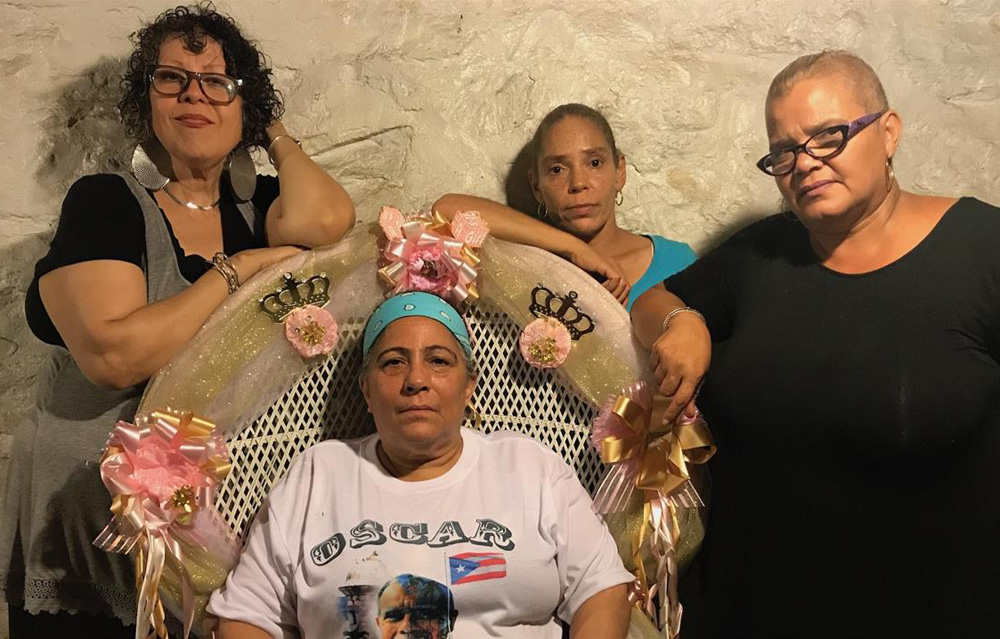Sometimes all you need is to point straight ahead and shoot, an approach as much as an attitude in “La Madrina: The [Savage] Life of Lorine Padilla,” whose lead subject is about as charismatic and forthright as any filmmaker could ever ask for. Strangely, as director Raquel Cepeda notes with flashbacks to other documentaries from the Bronx over the past few decades, Padilla has usually taken on supporting status in films made about the community where she was once a member of the Puerto Rican-African American gang the Savage Skulls and has since become an activist, called “the Godmother” by many when her hard-driving ways are accompanied by a big heart and a sympathetic ear. But in “La Madrina,” Padilla is allowed to directly address the camera and beyond the bravado that grabs your attention and never lets go, Cepeda shines a light on how the most outspoken women could be somewhat silenced even in a community seeking progress towards racial and economic equity when society as a whole remain dominated by men.
Welcomed into the world by her mother telling her, “You’re going to be a bitch because a bitch is giving birth to you,” Padilla would seem to be deferential to no one, but as the companion of Felipe “Blackie” Mercado, the founder of the Savage Skulls, she was inevitably seen as secondary, a charge she takes head on at the start of “La Madrina” when she tells audiences, “I was in rumbles, I got arrested — if that don’t make a member [of the Skulls], I don’t know what does.” As it turns out, the confusion for some may stem from the fact she never wore the infamous “Property of the Savage Skulls” jacket, bristling at notion that she was ever owned by anyone, though the chasm between what the public saw and what was really happening becomes a key point of interest for Cepeda, who is careful not to suggest Padilla as the power behind the throne, but rather an equal partner in pursuing progress who was demoted in narratives around the gang which has been romanticized in the years since.
You certainly fall in love with the gregarious Padilla as she recalls the Bronx in its most dire days in the ‘70s when landlords would invite gangs into buildings in order to push out the tenants and as former policeman Bob Werner says, there was a better chance of dying on the streets than to serve in Vietnam. It would be easy to glorify the difficult hand that Padilla was dealt, but just as Cepeda pushes past Padilla’s gruff exterior to find a wise old soul, “La Madrina” is constantly interrogating the circumstances that caused its subject to develop such a thick skin, from her mother killing her chances at pursuing a better education upstate when she was in the 7th grade because she had to stick around to take care of a new baby, to pursuing gun control legislation when a four-year-old relative was shot.
There’s bits and pieces of those other films that Padilla appeared in that are cannily used to help illustrate her memories, but in flipping the equation to make her voice central, it’s refreshing to not only revive a lost chapter of New York and restoring it to the public record as the city’s turn towards gentrification threatens to bury it, but to offer a perspective that was marginalized even within an already underrepresented community. Padilla’s descriptions are so vivid that they don’t even require visual aid, but there’s a subtle power in reclaiming the images as her own when they’re memories she shares with Mercado, and Cepeda and editor Sonia Gonzalez-Martinez shrewdly structure the film in such a way that other people in her life make their way onto the screen seemingly by her invitation, having taken authorship over her own narrative. It’s impressive enough that Padilla is still standing, able to reflect on a wild past that would’ve felled so many others, but in “La Madrina,” you get to see her build up the community around her, creating a sense of equality that has so often eluded her in making her strength theirs.
“La Madrina: The [Savage] Life of Lorine Padilla” will be available to stream through DOC NYC from November 11th through 19th.




